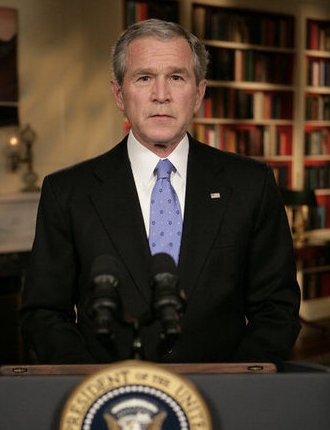With most of Congress in an uproar over new White House plan for the war in Iraq, one could be forgiven for thinking that the new strategy is diametrically opposed to last month's report of the bipartisan Iraq Study Group. To be sure, the harsh tone towards Iran and Syria was not something that James Baker and Lee Hamilton recommended, but in several respects the ISG and the White House are actually singing in tune. First, sending reinforcements to Baghdad was not opposed by the Iraq Study Group. The ISG report clearly states that it could "support a short-term redeployment or surge of American combat forces to stabilize Baghdad." The level of violence in and around Baghdad has crippled the ability of both the Maliki government and the U.S. military to restore basic services and establish a modicum of law and order. The ISG recognized, as does the U.S. military, that Baghdad is central to success or failure in Iraq. It is not surprising that more troops were added -- the total number of which is still below December 2005 levels. Second, both the Bush plan and the ISG establish specific milestones for the Maliki government. In his Jan. 10 speech, President Bush outlined commitments by Maliki concerning an oil-sharing law, provincial elections, responsibility for security, and reform of both the constitution and the de-Baathification laws.
Bush and the Iraq Study Group: Closer Than We Thought?

